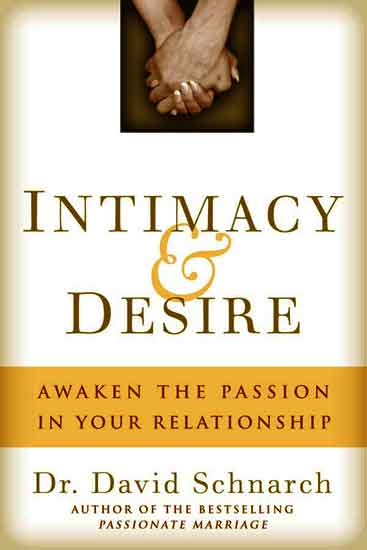


 Do your feelings, anxieties, and insecurities run away with you and dominate your relationships?
Do your feelings, anxieties, and insecurities run away with you and dominate your relationships?Are you chronically late or procrastinating, and expecting other people to put up with it?
Do you always have to be right in an argument?
Do you get triggered and lash out verbally or physically in ways you later regret?
Do you need your partner to apologize and say he or she is sorry after a fight in order to get over it?
These are all signs of difficulty regulating and modulating your inner emotional world. None of us are perfect. Everyone flies off the handle sometimes, or gets lost in their own thoughts and feelings. But many people have difficulty "keeping themselves together." And however understandable or explainable these reactions are, there's an unavoidable consequence for other people in their lives.
During the course of conducting workshops or doing therapy I often talk about learning to regulate your own emotions, calm your own anxieties, soothe your own mind, and lick your own emotional bruises. When I describe these abilities as emotional autonomy, sometimes I clearly see some people don't like where they think this is heading. They hear this as me saying:
- They can never need or ask for help.
- It's weak to do so.
- They have to be perfect.
- They have to put up with whatever someone partner does to them, just "suck it up."
- The goal of life is to never need anyone.
- It's not OK to want your partner to soothe you.
I have none of these in mind, but their minds often go to what they stand to loose: Things like being expected to function like an adult. Or ceasing to be able to control others with their emotional hypersensitivity. Or others ceasing to put up with their crap or accept their limitations. They picture me as the eternal "rugged individualist," advocating an "I don't need anybody attitude" and ignoring people's healthy dependency needs. Needless to say, these are not easy people to win over. But it happens more often than not and it's interesting how this occurs.
First off, I point out that if I was advocating an "I am a rock, I am an island" philosophy, I wouldn't be talking about their impact on other people!
Controlling the people around you
Then I tell them a basic theorem of my Crucible Approach which makes even the most defensive listener nod in agreement: People who can't control themselves control the people around them.
To help folks see the profoundness of this notion I offer different mental images that include:
- People who can't control their emotions, like their anger or hair-trigger temper.
- People who are insanely jealous or stalking their partner.
- Emotionally insecure people who demand constant affirmation from others.
- People who abuse drugs and alcohol as ways of anesthetizing their feelings, dampening their anxieties, or drowning their sorrows.
- Parents who push their children to be outstanding athletes, musicians, artists, or students because the parents need the reflected glory.
Then I move to more difficult or more personally relevant examples like:
- Parents who, once upset by their child, work themselves into an emotional frenzy and hold the child responsible.
- Partners who physically or emotionally batter their mate.
- Parents who take their children hostage through emotional withdrawal or rejection.
- Parents who can't control their sexual impulses towards their children.
By this point, most defensive or antagonistic listeners see the importance of emotional autonomy. They stop picturing this as everyone going off in their own self-centered direction. They realize emotional autonomy lets people get closer together in healthier, more stable, and more satisfying ways.
When people can't modulate their own anxieties and insecurities, one partner's options and priorities are sacrificed on the alter of the other's fears, whether those options are a new baby, a new job, or new sexual behavior. You also fear that if your partner doesn't need you, because he or she can take care of himself/herself, then he or she wouldn't want you or choose you. This makes you fear your partner becoming more emotionally autonomous as much as you fear it in yourself.
The Arnold Schwarzenegger / Tiger Woods / Elliot Spitzer/ John Edwards / etc. debacles demonstrate a completely different view of "people who can't control themselves control the people around them." When people depend on getting a positive sense of self from others, their partners' preferences for monogamy often go up in smoke, and the marriage revolves around containment by implanting false beliefs.
Learning to self-soothe is a kindness to others
Speaking to the best in people makes them see farther than their own immediate self-interest. That's why I truly hope it's the best in you reading this. If so, I'm sure you'll understand two final thoughts:
Managing your own emotions, feelings, and anxieties gives other people back their lives.
Couples Enrichment Weekends based on these precepts are scheduled throughout the year. Read more here.
For a nice overview of my approach, read the post "Lust For The Long Haul" by Elizabeth Devita-Raeburn.
You'll find more "Ideas to Ponder" in Intimacy & Desire.
For more resources visit DesireBook.com and Crucible4Points.com
© 2011 by Crucible Institite. All rights reserved.
2 thoughts on “People who can’t control themselves control the people around them”
Comments are closed.

Controlling people
Here is an observation I have made that I wonder if others also think is true:
People who control others complain that others are controling them.
In my relationship with my now ex-wife, I was the passive partner who inappropriately aquiesed to her demands. Yet she complained that I was trying to control her. I must admit she had a point as I did so through passive aggression, like being late or forgetting. This unhealthy dance went on for years until she filed for divoce. Seeing and talking to Dr. Schnarch at SMU in March, attempting to stand on my own two feet, and doing everything I could to bring about recnciliation, including giving her a copy of his book, was not enough to stop the train.
I guess the point is that it takes two to make a controlling relationsship. Only by differentiating can the the cycle bestopped.
Thanks Dr. for helping me to stand on my own two feet. Even though my marriage has ended, I am okay and moving forward.
Your observation is right on.
Dear Hornspiel,
Your corollary is a very fitting and hard-earned observation.
That’s good! You’ve added a great piece to the picture. And if I understand this, it’s not just "a new insight," it’s an understanding at a new level, out of an attempt to live at a new level of development. It’s good perceptiveness to see you wife may likely have been doing this. But if you truly see the universality of your observation, you see it applies to you too. It’s clear you see you were controlling your wife too. But I’m guessing that while you were inappropriately acquiescing to her demands, you were complaining or acting like she was controlling you.
Perhaps had you been willing to stand on your own two feet earlier, you could have preserved the marriage. But it seems you’re thinking, now that you look at it, this would have unsettled the marriage too if your wife wasn’t willing to confront herself then. In many cases, that’s perfectly true. But no matter how you slice it, some (or many) aspects of your divorce sound like losses, which I’m sad to hear. I’m happy to hear this is a mile marker on your way to being a more solid person.
I’m so pleased with your corollary, I’m going to write another article. There’s actually a third point that fits here. I’m not going to mention it here and save it for the article.When it’s published, I hope you feel proud in ways that lead you to create the person you want to be.
Best wishes.